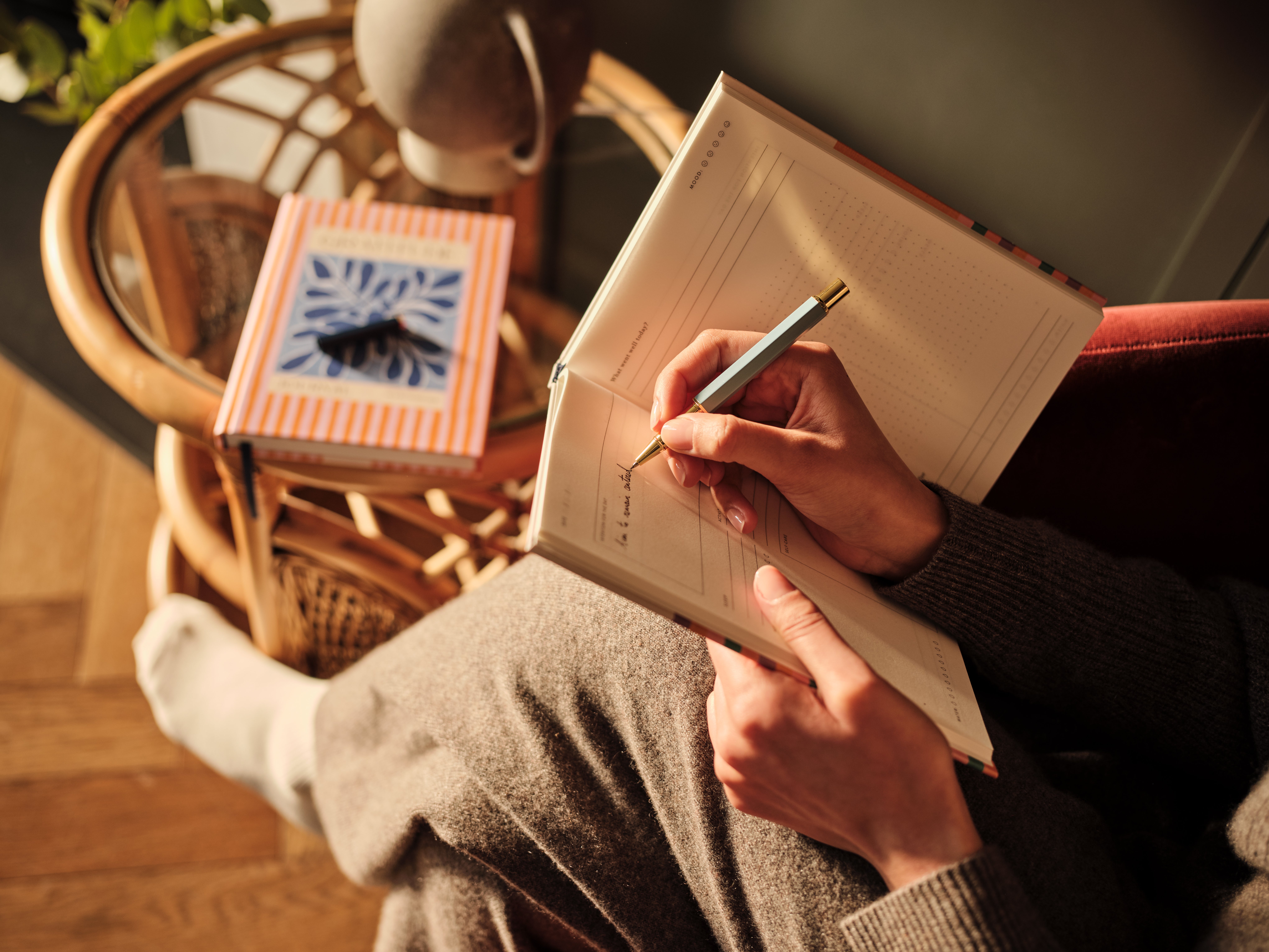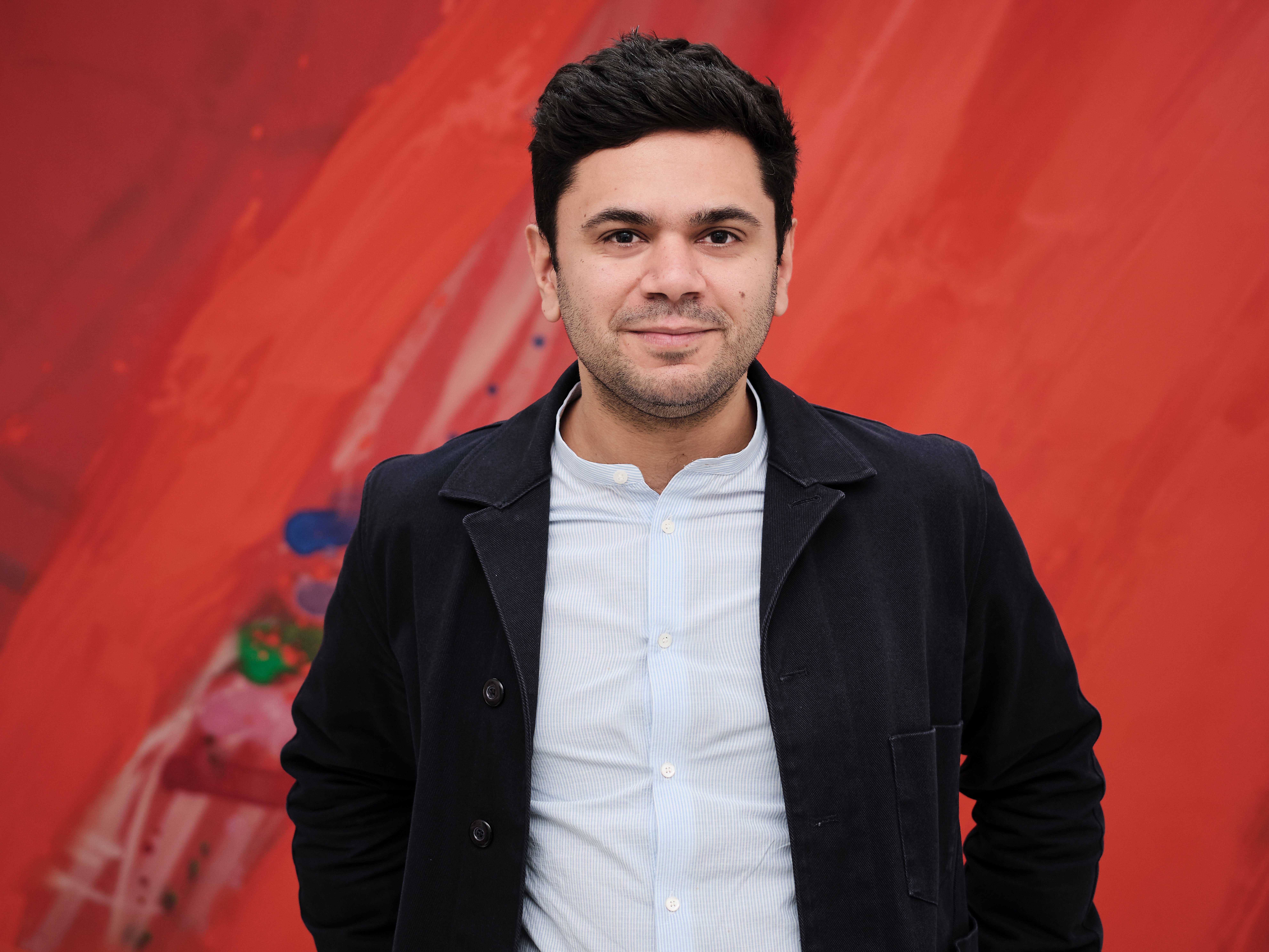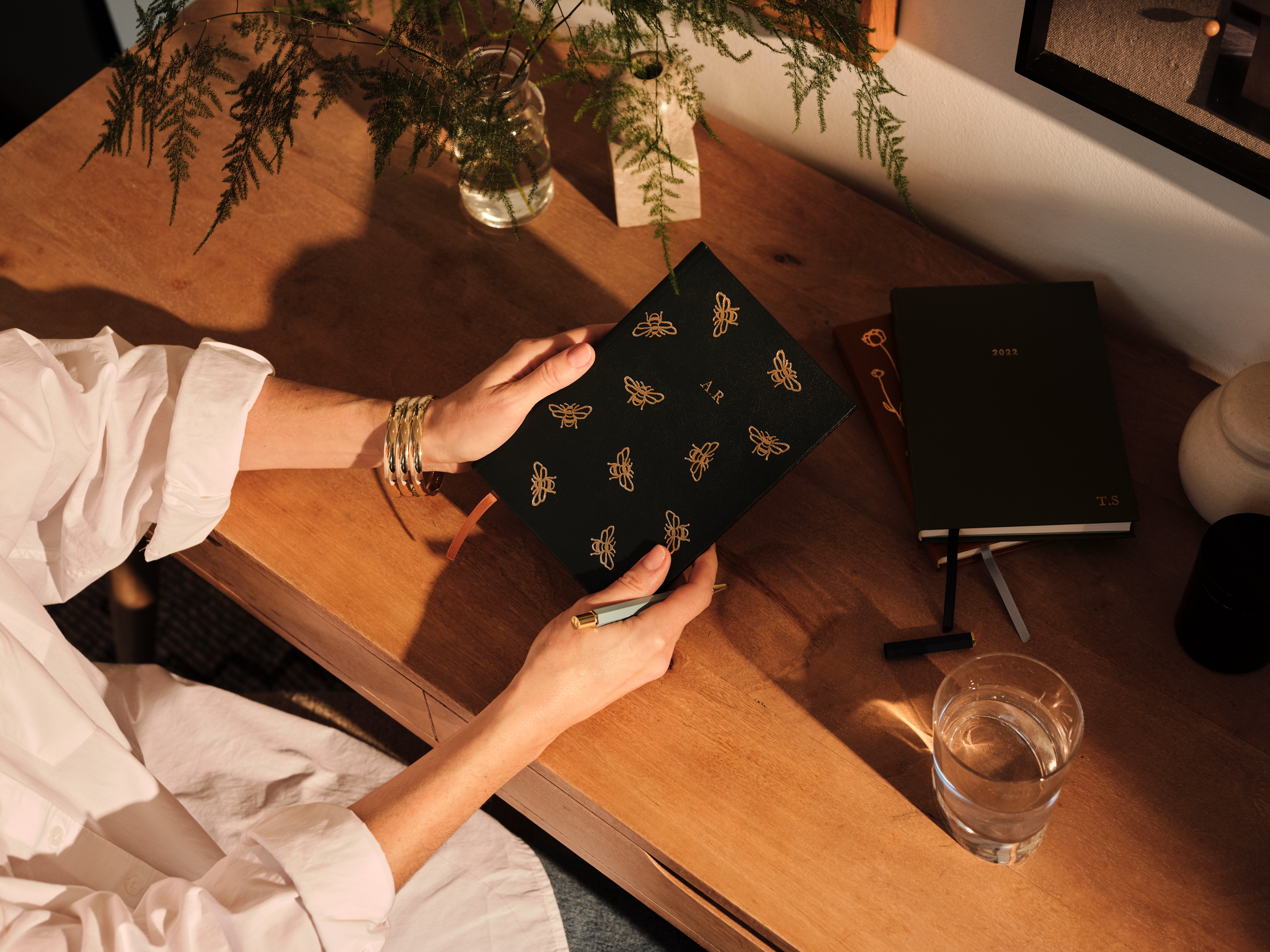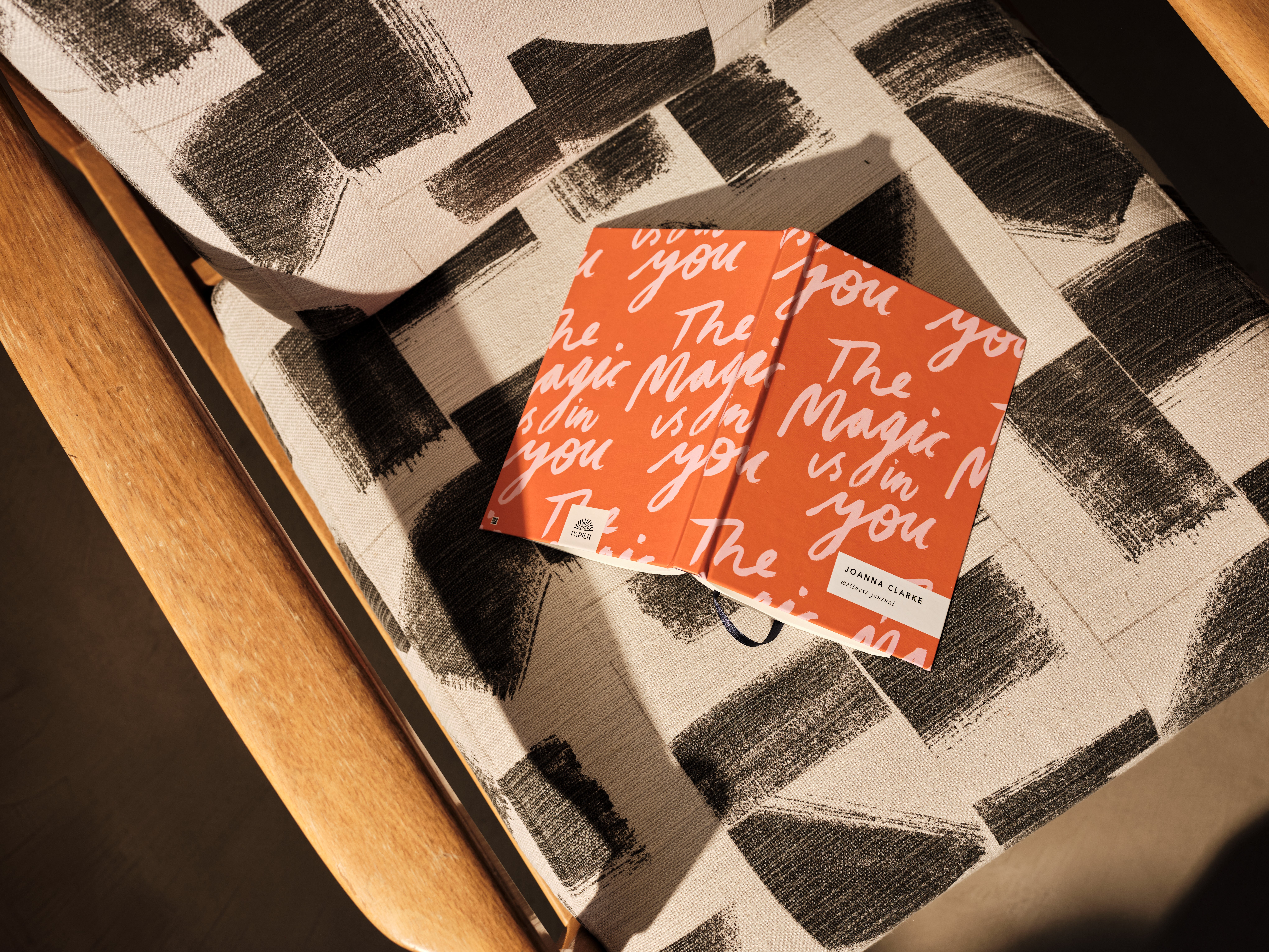Papier: Uncovering the possibility of a blank page
Papier is that paradoxical entity, a tech business selling analogue products, and their success has been driven by young people. Heather Martin speaks to founder and CEO Taymoor Atighetchi


Thirty-two-year-old Taymoor Atighetchi is the founder and CEO of category-defining stationery brand Papier. His surname means “antiques dealer” in Farsi, and he is the son and grandson of art dealers. His parents emigrated to England in the 1970s and Taymoor was born in west London, not far from Notting Hill. He grew up surrounded by “works on paper”, miniatures and manuscripts, framed and on the wall. “My love of the physicality and tactility of paper stems from art,” he says.
His love of selling comes from the Portobello Road. His dad was the first to take him there: “He’s been going every Saturday for 50 years. When I was 17 I set up my own stall, and for a while I was the youngest antiques dealer on the market.” At first he borrowed pieces from his father, careful to ask how much he wanted for them, but eventually he began buying his own, both from the market itself and from auctions: “That was all inherited knowledge. I still watch Antiques Roadshow every week and have a go at the value of things before they say it.”
According to the Papier website, “Stationery is a space to become”. For Taymoor, this is more than a mere slogan; it goes to the heart of the business. He wants everyone “to uncover the possibility of a blank page”, which means something different to each one of us: for the author, an unwritten book; for someone about to go on their travels, “that whole adventure awaiting them”. He’s not worried about mistakes. “Crossings-out are like a map of where your mind’s been taking you,” he says. “It’s like modelling with clay – you can see the different adjustments as you go.” Papier wants people who buy into the brand to buy into its core beliefs as well.
Atighetchi studied History of Art at Cambridge. It taught him about understanding design, but also that just like History of Art, branding is about telling a story. He then spent three years with Bain & Company, “advising companies how to grow”. It was part-penance, for three years of pure pleasure pursuing a non-vocational degree, and part-apprenticeship. “Being a sole trader on a market stall means you get the love of working for yourself, but I knew I needed to learn.” What he learned was numbers, and how to build financial models and spreadsheets.
Taymoor always knew he wanted to set up his own business. So he left Bain and embraced that blank sheet of paper. “In some ways it was staring me in the face: the thing that I love and the thing I enjoy, and a category for which there wasn’t a brand that was global. That was the genesis.” Papier was founded in 2015 and now employs over 100 people. On average, it has doubled in size every year, and the US market is currently on track to account for almost 40 per cent of revenue, having grown fivefold since 2019. The company has just secured $50m (£36.8m) in Series C funding to drive international expansion, and has announced the opening of a new office in New York’s SoHo to cater to escalating demand. Taymoor is also planning flagship stores in key cities. “Offline has a role in brand-building,” he concedes. But he still believes the future is direct to consumer, “to leverage what is good about technology, which is convenience”.

Not to mention green efficiency. Papier’s print-on-demand products are sourced from sustainable forests growing at the rate of more than 1,500 football pitches a day, and printed locally in the UK, US and Australia so that customers can be served with a reduced carbon footprint. “By buying Papier,” Taymoor says, “you’re supporting forestry.”
What heading up a high-growth business gives him that art didn’t is pace and scale. “You get the love of selling beautiful objects with the exhilaration of selling to a mass market as well.” There may well be “no greater community than the Portobello Road”, but Papier is a virtual Portobello writ large on a global scale.
Papier is that paradoxical entity, a tech business selling analogue products. Their success has been driven by young people aged 18 to 25, and over 60 per cent of customers buy Papier products on their mobile phones. “But we are very much selling an analogue lifestyle. People want the ease of tech to purchase, but they don’t want tech to dominate every aspect of their lives.” The way Taymoor sees it, the world strives after equilibrium, and “the more digital we’re exposed to, the more we need that counterbalance. When you’re sitting by a beach you want a book that won’t interrupt you with a phone call”. He notes the relative decline of eReaders and the increased investment of the publishing industry in seductive physical books: embossing and debossing, bespoke sprayed edges and luxury endpapers. “Just as publishers have been pushing into gold foil on the front covers of books, so nearly a third of Papier products now feature some form of foiling, because people want that tactility.”

In Taymoor’s view, we are sceptical about the impact of digital. “The connotations of digital from a PR and brand perspective are now anxiety and stress, but if you flip that and consider the way people are talking about analogue, it’s all about wellness. We want to make the act of bringing Papier into your life and living a life that’s balanced very easily with the power of technology.”
Until very recently, 85 per cent of stationery was still bought offline in shops. But due in part to Covid, that market share is shrinking quickly, and Papier saw a 300 per cent increase in sales of cards and notepaper during the first lockdown. “We grew because that market was forced to look online. During the pandemic, a lot of paper people found us and were grateful for that.” And what with not being stuck on public transport every day, they were able to “grow their habits of corresponding” and “discover the joy of writing”.
From its inception, Papier has sold direct to the consumer online, not via a retailer. It allows the customer to personalise their purchases and still get them within three days of ordering. And over half their products are created with other artists and institutions, such as the V&A Museum and fashion designer Alice Temperley.

Lockdown may have seen a return to old-fashioned letter-writing. But millennials and Gen Z-ers are mostly writing to themselves, using pen and paper as a means of reflection and exploration. Papier’s biggest sellers are notebooks and journals, including wellness and gratitude journals that “tap into a lifestyle centred on mindfulness”. Such journals typically include some directional text, and Papier is now working with authors and editors to develop “assisted journals”, in which up to 20 per cent of the product will have content designed to help people write. “Collaboration is part of Papier’s DNA,” he says.
Whereas digital is the primary mode of functional communication, Taymoor describes written communication as “a more elevated mode”. “Writing has become the format for only the most special of communications,” he says. “To say thank you for a lovely evening, or a wedding, or for love letters.” Which explains why greetings cards remain a growth category too. Paper “can bring a reader to tears in a way that doesn’t happen in a WhatsApp, because you see the person’s handwriting and emotions. It can be the most loyal companion every evening and your most trustworthy confidant.” Cards and letters are “marks of humanity”. They sit on mantelpieces. People find it difficult to throw them away.
Taymoor tells me how in Islamic art, calligraphy is the highest form, and how he has always loved handwriting. As a boy he “had a thing about it”, pushing his italic script to extremes where it became more and more grand and less and less legible: “I loved putting pen to paper.” Now Papier hosts calligraphy classes, and plans to launch a range of writing utensils later this year. “The paper person’s primary domain is their desk,” he says. “Our brand is about making sure we can serve that: making sure that we’re there on your desk.”
“Tactility” and “physicality” are dominant nouns in Taymoor’s vocabulary. Somewhere in the marketing material, I caught a glimpse of the word “desire”. But the concept that recurs most often in the course of our conversation is “love”. Papier is born of the love instilled in Taymoor Atighetchi as a boy. The love of beautiful things, the love of selling, the love of community. All rolled up in his love of paper.
“It’s now cool to own a piece of Papier,” he says. “That is the magic of stationery.”




Join our commenting forum
Join thought-provoking conversations, follow other Independent readers and see their replies
Comments